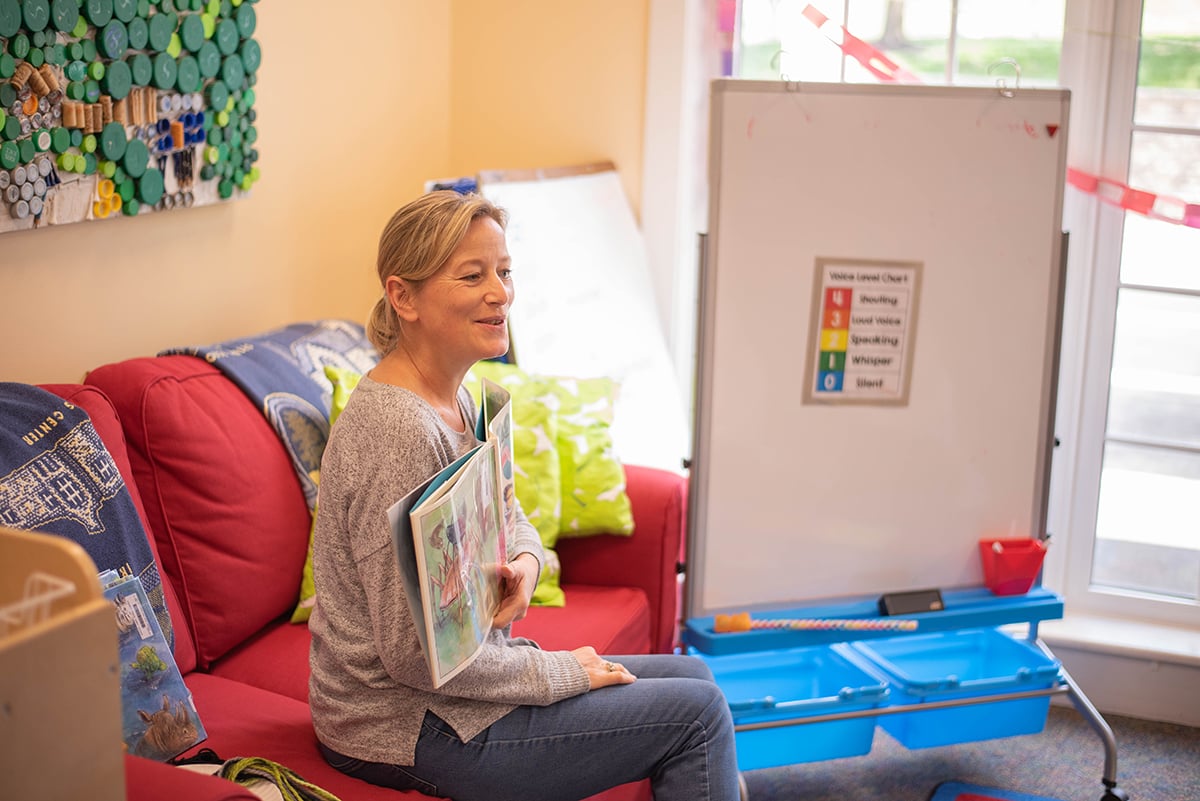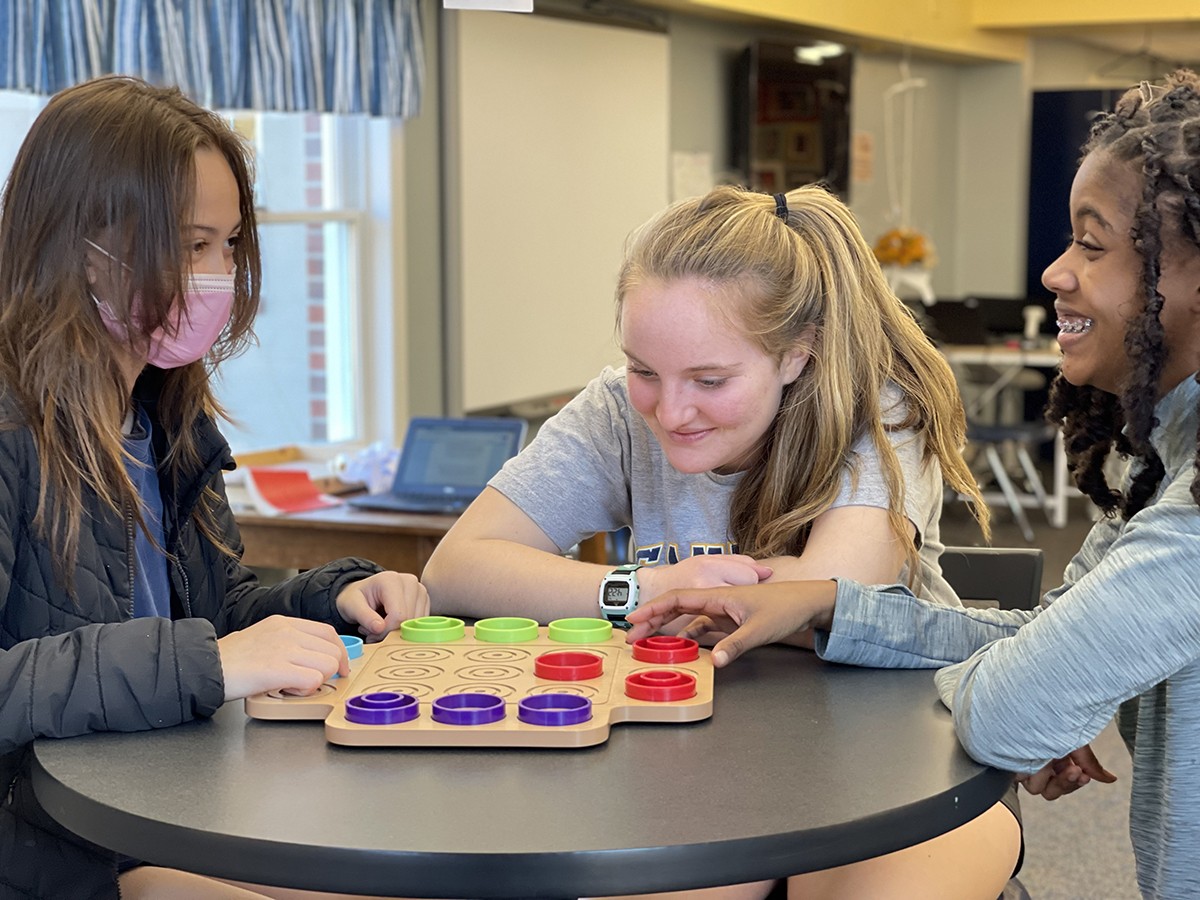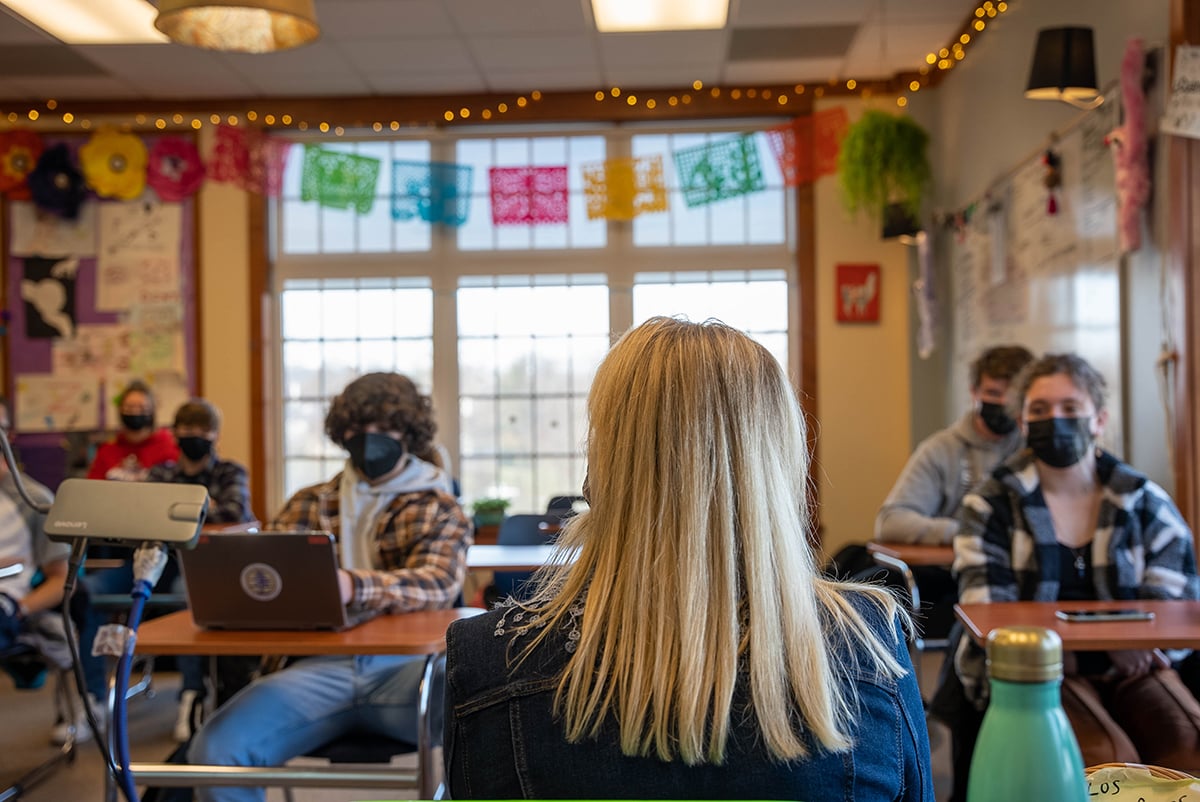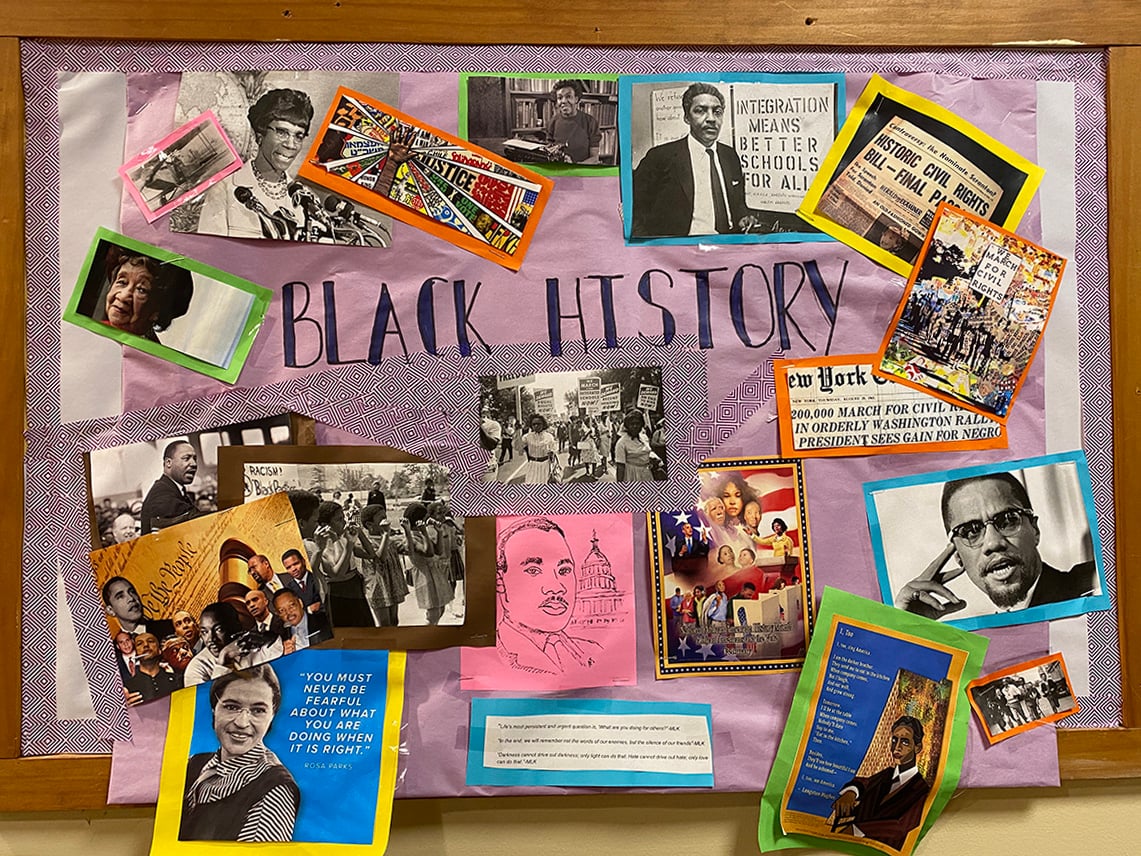This past school year–in fact the past few–have been filled with some tough times, and parents are often asked really hard questions by some of our littlest learners. With all that’s going on in our world, our nation, and our schools today, it’s hard to know what to say about these very complex topics.
When the echoes of the final name emanating from the speaker finish their reverberation and the crowd erupts in cheers for the class of 2022, parents of graduates may find themselves at the center of a cyclone of emotions. Countless feelings which likely include pride, excitement, fear, worry, joy, and sadness rush over them at this pivotal moment in not only their child’s life but also their own. This moment signifies the official beginning of the next chapter for your family.
Topics: Summer, Parenting Tips, High School Experience
Why Representation Matters Beyond AAPI Heritage Month
Jamy Haughey is the Director of Diversity, Equity, and Inclusion at Sanford School. She also teaches Upper School math and science courses.
Growing up in a predominantly white community in suburban South Jersey, there were not many people who looked like me, nor were there many ways in which I saw myself reflected either through the curriculum that my teachers used or within the media that I was exposed to. Not seeing myself reflected in my daily life left me with a yearning for belonging; I wanted to be seen, heard, and valued. One of the first times when I meaningfully saw myself was in English class during my junior year when I read The Joy Luck Club by Amy Tan. Despite not being Chinese American, there were many instances throughout the book where I saw mirrors of my own experience growing up as a first-generation Filipino American, and I was able to relate to the daughters’ search for identity in a world between cultures. It was then that I realized how impactful it was to see my own story and struggles as an Asian American written in pages before me. Seeing myself represented in that story made me feel a sense of belonging in an incredibly significant way. I felt seen.
A pandemic perk? Is there such a thing? To be sure, being a student or an educator during the 2020–21 and 2021–22 school years has been difficult. One strategy to staying safe, however, turned out to have real benefits—outdoor classrooms.
Topics: Health & Wellness
Private school communities are ever-enduring. Bonds formed among classmates, families, and faculty that are rooted in the learning experience create meaningful and lasting relationships. At each stage of your life, there are opportunities to stay connected to your school and fellow alumni. These three actions will help you rekindle, maintain, and strengthen the connections you have with your alma mater.
Topics: Alumni
Art Smarts: Visual arts and emotional intelligence
When you think about what makes a child “smart” the first things that come to mind are often things like scores on a math quiz, or a grade on a writing assignment in English class. However, it’s important to remember that there are many different ways to be smart, including having high levels of “emotional intelligence,” also referred to as “emotional quotient” or “EQ.” According to Helpguide International, emotional intelligence is the:
“ability to understand, use, and manage your own emotions in positive ways to relieve stress, communicate effectively, empathize with others, overcome challenges and defuse conflict.”
These kinds of skills are invaluable, because, as the authors explain, “your IQ [intelligence quotient] can help you get into college, but it’s your EQ [emotional quotient] that will help you manage [your] stress and emotions when facing your final exams.” Developing emotional intelligence early can help students build self-confidence and resilience, as well as lay the foundations for strong interpersonal relationships as children, teens, and adults.
Topics: Arts
If you are looking for a way to have fun with your child while also keeping their brains engaged, then these STEM (science, technology, engineering, and math) board games are for you! Some games are for groups, so they’re perfect to pull out for a Family Game Night, while others have solo or two-player options for kids who want more independent fun.
Topics: STEM, Middle School
Celebrating Women's History Month In School Benefits All Learners
Every March, we celebrate Women’s History Month. We honor women, their role in history, their accomplishments, and their futures. When Women’s History Month is celebrated in school, educators can emphasize the value of women’s voices and encourage all students to respect and support equality. Women’s History Month is about honoring the past, but it’s also about how we move into the future. How will we raise our girls to understand the value of our own voices? How will we help provide healing and give hope?
Topics: Community, Diversity, Elementary Education, High School Experience, Middle School
6 Ways for Families to support Teachers in the pandemic
There's currently some frustration among educators around the lexicon of COVID. Teachers and school staff have probably grown weary of the descriptions we as school leaders have used as our communities have navigated the pandemic. Words like “flexible,” “nimble,” and “pivot” didn’t carry emotional weight before March 2020.
Topics: Health & Wellness, Community
3 meaningful ways to celebrate Black History Month
Oftentimes, Black History Month is an opportunity for educators to share the biographies of traditional prominent Black figures of the past: Martin Luther King Jr., Harriet Tubman, Rosa Parks, Ruby Bridges. February has been a month that highlighted the struggle of the Black community, with an implication that the struggle was a thing of the past, and that the concept of racism, prejudice, and discrimination was relegated only to a time prior to the Civil Rights Movement.
The Origin of Black History Month
Without a doubt, such prominent figures have contributed greatly to the advancement of Black people, but focusing only on stories of struggle can limit the potential of the month-long celebration of Black History.
Black History Month was established by Carter G. Woodson, a scholar known as the “Father of Black History,” who, throughout his lifetime, was dedicated to celebrating the historical contributions and achievements of Black people. Initially known as “Negro History Week” (1926), celebrations of Black achievement were popularized and thus led to the establishment of Black History Month, which has been celebrated every February since 1976.
Since its inception, Black History Month has been a time to reflect on the fight for equity and celebrate the culture, accomplishments, and achievements of many Black Americans, who fought for and continue to fight for justice.
How can you honor Black History?
- Look beyond buses and boycotts. In addition to the pioneers of Black American history, there are many figures, both from the past and from the present, who have been influential in making history. Find current Black figures who are the history makers of the future.
- Read books that highlight Black joy. Look for stories that are not centered around trauma and struggle, but rather stories that portray proud Black characters who are part of loving and caring communities. Such joyful stories are included in the following lists:
- Celebrate Black history throughout the year. Find ways to incorporate continued learning about the history, contributions, and achievements of Black people during and outside of Black History Month. Black History, after all, is American History.

Beyond the month of February
Finding the balance between recognizing the historical struggles that Black America has faced, and continues to face, while looking ahead to the future is hard.
Being intentional about celebrating, amplifying, and highlighting the Black experience and Black joy not only during Black History Month, but throughout the entire year, takes deliberateness. Sanford strikes this balance well: As an institution, we seek to learn about the Black trailblazers of the past, and acknowledge the struggle, resistance, and strength that Black America needs to overcome adversity, while simultaneously looking toward the present and the future to find current history makers.
Topics: Diversity


















